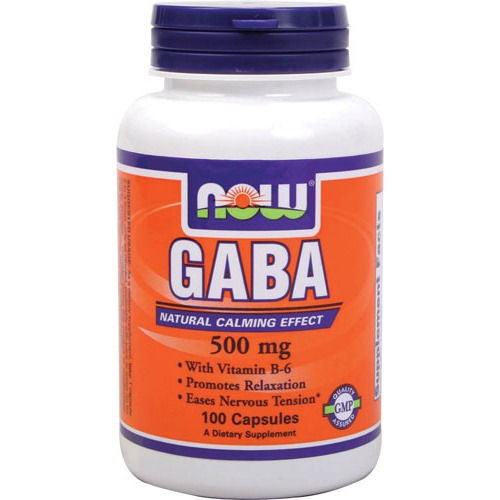
Best Immune Support Vitamins Ranked By Health Professionals In 2025
The contemporary lifestyles indicate a growing interest in preventative health. Boosting the immune system has always been on the front burner, particularly in our world of stress and fluctuating seasons and international health concerns. An increasing number of specialists now pay attention to nutrition to remain healthy in the long run. There are many supplements, and it may become confusing to decide how to select the right supplements. This guide explores the top-rated options recommended this year. The ultimate choice depends on the doctor, dietitian, and wellness specialist’s experience, which focuses on the effectiveness of the best Immune Support Vitamins.
Why This Topic Deserves Attention
With immunity remaining a focal point in the community, it is necessary to determine what nutrients actually work. The benefits of supplements, which are evidence-based and contain no extra additives, are attracting more attention from experts. Medical experts inspected clinical trials, ingredient standards, and bioavailability to evaluate the position of these vitamins. They aim to help ordinary shoppers make wiser health decisions.
Vitamin C: A Timeless Shield for the Immune System
Vitamin C continues to be one of the pillars of immune health due to its antioxidant properties and cellular protective effects. It can ease inflammation, facilitate white blood cells, and heal faster. As of 2025, it was again demonstrated to shorten the typical cold and decrease its severity when regularly consumed.
Fruits such as citrus, bell pepper, and broccoli are natural sources of Vitamin C, but many professionals recommend supplementation to reach the optimal levels. Better absorption may be achieved by finding buffered forms or liposomal formulations. This vitamin remains at the head of Immune Support Vitamins due to its efficiency and availability.
Vitamin D3: The Sunlight Vitamin Doctors Trust
Vitamin D3 is a physician’s favorite in northern states where there is little sun. This fat-soluble vitamin sustains bone health and is important in balancing immune responses. A deficiency has also been linked to high susceptibility to infections and autoimmune conditions.
Medical professionals recommend regular testing and individualized doses. Unlike generic multivitamins, standalone D3 supplements offer stronger potency. Vitamin D3 is also now found in many immune-centered supplements since it has been shown to boost immune function. Due to regular consumption, it has dominated the list of desired of the best Immune Support Vitamins.
Zinc: Trace Mineral with Major Benefits
Zinc is becoming more popular due to its ability to stimulate immune cells and decrease inflammation. Healthcare providers commonly prescribe it when someone first becomes sick, particularly with viruses. Zinc helps grow T-cells that aid in defeating pathogens.
Legumes, seeds, and meat are the sources of food, although supplemental forms such as zinc picolinate or zinc citrate are believed to be better absorbed. Scientists are mindful of excessive use because excess doses disrupt the balance of copper. Nevertheless, its strategic application helps it gain a good standing as a clinician-recommended Immune Support Vitamin.
Elderberry Extract: Nature’s Potent Remedy
Herbalists and practitioners of functional medicine frequently turn to elderberry extract during flu season. Elderberries are a source of antioxidants and flavonoids that moderate the immune system and lower the viral load. New clinical data proved its utility in 2025 when it was applied as a preventive agent and at the acute stages of the infection.
Although elderberry is not technically a vitamin, it is frequently found in displays with Immune Support Vitamins and is considered to be highly powerful, like its vitamin C components. During more risky periods, it is recommended that it be used in syrup or capsule form. Zinc and vitamin D3 are complementary, which is where this comes in.
Vitamin A: The Often-Overlooked Immune Nutrient
Vitamin A is also an often-forgotten player in immunity because it upholds mucosal barriers and immune protection. Health professionals stress it as vital to immune health due to its role in maintaining the integrity of the respiratory tract and skin.
Beta-carotene supplement is a plant-derived source, and natural sources include liver, eggs, and colored vegetables. It is a part of personalized immune programs, and practitioners tend to prescribe it in the winter. Its target benefit qualifies it to be an underestimated but useful product on the list of the best Immune Support Vitamins.
Probiotics: Gut Health Equals Immune Health
Many health professionals currently perceive the gut as the hub of the immune system. Probiotics, as they are not a class of vitamins by themselves, are at the core of immune resilience. They promote the microbiome, which helps to control inflammation, nutrient assimilation, and pathogen defense.
Clinical nutritionists and doctors commonly advise strains including Bifidobacterium and Lactobacillus. Such strains have been found beneficial in respiratory infections and allergic responses. Technically distinct, probiotics are frequently part of well-rounded wellness, going together with the best Immune Support Vitamins.
Conclusion
Being healthy in 2025 would mean more than not getting sick. It requires establishing a powerful internal defense by creating a smart nutritional plan. Health experts are still assessing and optimising supplement regimens, and they provide advice that seeks the right balance between safety and efficacy. Selecting the appropriate nutrients, according to reliable recommendations, contributes to greater resilience throughout the year. Creating time to use the best Immune Support Vitamins is an expression of active health.


